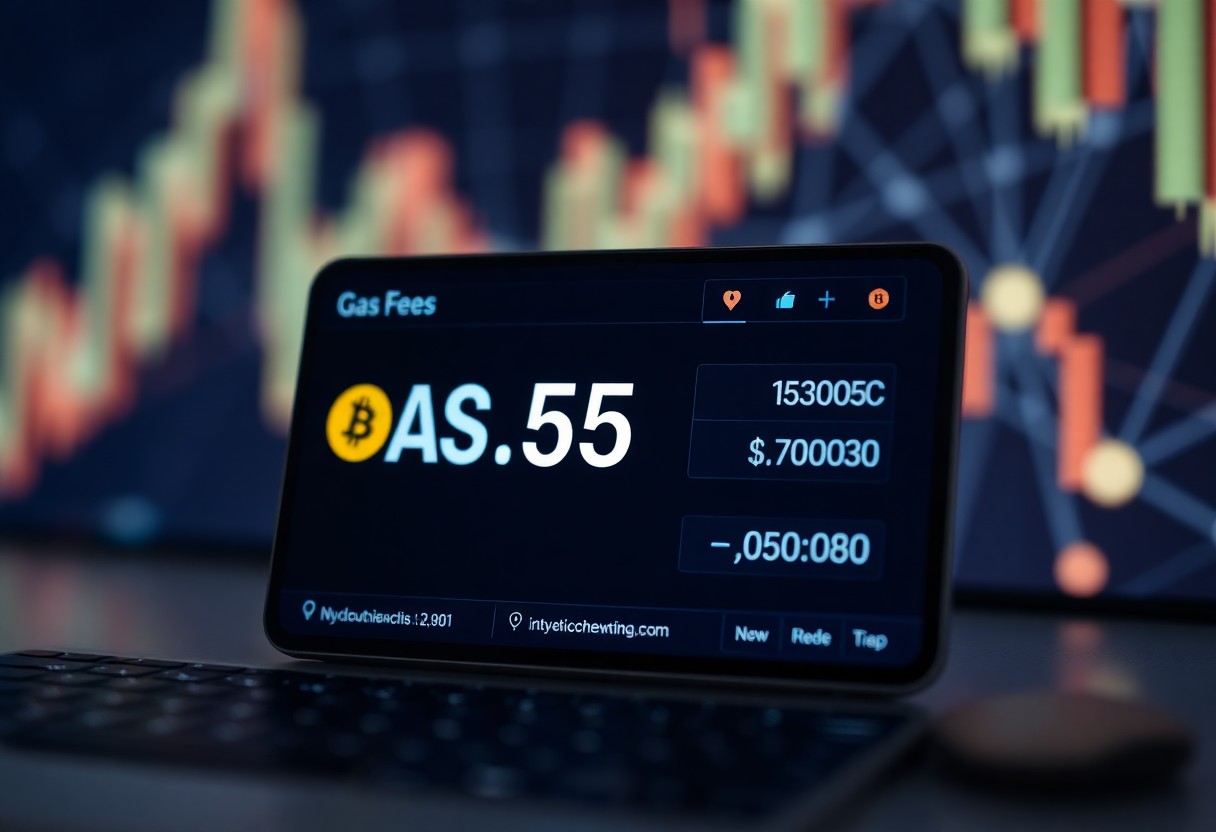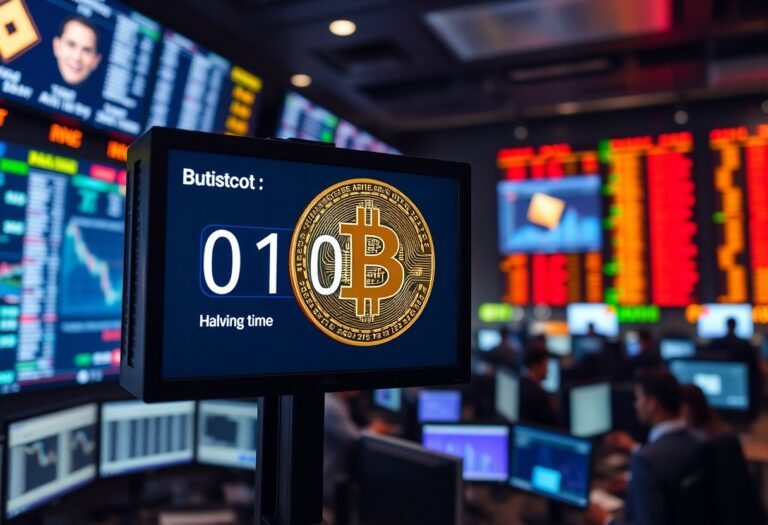What Are Gas Fees and Why Do They Matter?
It’s vital to understand gas fees when interacting with blockchain networks, as these fees determine the cost of executing transactions or smart contracts. You should be aware that high gas fees can significantly impact your overall investment, making it more expensive to send tokens or interact with decentralized applications. Conversely, lower fees can enhance your trading efficiency and profitability. By grasping how gas fees work and the factors influencing them, you can effectively navigate the cryptocurrency landscape and optimize your financial decisions.
Understanding Gas Fees
For anyone engaging with cryptocurrencies, understanding gas fees is imperative. Gas fees refer to the costs associated with processing transactions on a blockchain, primarily on networks like Ethereum. These fees ensure that miners and validators are compensated for their efforts in validating and executing transactions, thus maintaining the network’s integrity.
Definition of Gas Fees
Before delving deeper, it’s important to note that gas fees are the transaction fees required to perform operations on a blockchain. Each operation, whether it’s sending tokens or executing a smart contract, incurs a specific gas fee, which is expressed in Gwei, a subunit of Ether.
How Gas Fees Are Calculated
Definition of gas fees involves various factors, including network demand and transaction complexity. Gas prices fluctuate based on how congested the network is. You pay more when the network is busy, as miners prioritize transactions with higher fees to maximize their earnings.
Considering the dynamic nature of blockchain networks, you should monitor gas fees closely. During times of high demand, you may encounter significantly higher fees, impacting your transaction costs. Optimal timing and fee strategy can enhance your experience while minimizing expenses. Always stay informed to avoid overpaying and ensure efficiency in your transactions.
Importance of Gas Fees
Clearly, gas fees are vital for maintaining the efficiency and security of blockchain networks. They act as incentives for miners and validators to process transactions, ensuring that your transactions are confirmed in a timely manner. Without gas fees, the network could become congested and sluggish, potentially compromising the overall user experience and security.
Role in Network Transactions
Between the myriad of transactions occurring on a blockchain, gas fees determine the priority and speed at which your transaction is processed. Higher fees can expedite transaction confirmation, while lower fees may result in delays, affecting your ability to conduct business efficiently.
Impact on Blockchain Operations
Between the mechanisms of blockchain technology, gas fees significantly influence how networks operate. They deter spam transactions and ensure that users contribute to the system’s sustainability. A well-structured gas fee system supports network integrity and prevents abuse, ultimately benefiting all users.
A well-functioning gas fee structure ensures security and promotes fair usage of blockchain resources. This efficiency not only enhances your transaction experience but also protects the network from potential attacks, such as Denial of Service (DoS). By paying gas fees, you are actively participating in a healthy ecosystem that prioritizes reliability and fosters community trust. Understanding the dynamics of gas fees can empower you to make better choices in your blockchain interactions.
Factors Influencing Gas Fees
While navigating the blockchain ecosystem, several factors influence gas fees that you need to consider, including:
- Network congestion
- Transaction complexity
- Market demand
- Block size
Any understanding of these factors can help you make informed decisions when interacting with blockchain networks.
Network Congestion
Factors such as the number of active users and transaction volume impact network congestion, directly affecting the gas fees you encounter. During peak times, more users compete to have their transactions processed, leading to increased fees.
Transaction Complexity
Beside network congestion, the complexity of your transaction can significantly affect gas fees. Transactions involving smart contracts or intricate operations typically require more computational power and hence higher fees.
Consequently, if your transaction is straightforward, you may face lower fees, whereas complex transactions can escalate costs. It’s important to understand that complex operations not only consume more resources but may also expose you to higher risks if anything goes wrong. Therefore, evaluating your transaction’s complexity can help you manage your gas fees more effectively.
Gas Fees in Different Blockchains
After the advent of cryptocurrencies, gas fees have become a pivotal component in various blockchain ecosystems. Each blockchain has its own method for calculating and managing gas fees, affecting how transactions are processed and prioritized. Understanding these differences can help you make more informed choices about which network to use based on your needs and the associated costs.
Ethereum Gas Fees
Blockchains like Ethereum utilize a unique model for gas fees, which are determined by supply and demand for network resources. These fees can often spike during times of high activity, leading you to face exorbitant costs for processing transactions. Keeping an eye on gas prices can help you strategize when to send transactions to minimize fees.
Comparison with Other Cryptocurrencies
With various cryptocurrencies existing, their gas fee structures can significantly differ. Here’s a snapshot of some popular options:
Gas Fees Overview
| Cryptocurrency | Average Gas Fee |
|---|---|
| Ethereum | $20 – $50 |
| Binance Smart Chain | $0.10 – $0.50 |
| Polygon | Less than $0.01 |
Indeed, examining these comparative costs exposes how you could potentially save when using alternatives to Ethereum. While Ethereum’s fees can be opaque and fluctuate widely, other networks like Binance Smart Chain and Polygon offer significantly lower fees and faster confirmation times. This variability allows you to decide what fits your budget and transaction urgency better.
Strategies to Minimize Gas Fees
Now, minimizing gas fees requires strategic planning. Consider your timing, use transaction aggregators, and stay informed about network conditions to ensure you are optimizing your expenses. By using these methods, you can make your transactions more efficient and cost-effective, allowing you to retain more of your resources.
Timing Transactions
By monitoring network congestion and gas prices, you can time your transactions for when fees are lower. Gas fees often fluctuate throughout the day, so executing your transactions during off-peak hours can lead to significant savings.
Using Transaction Aggregators
Before initiating transactions, explore the option of transaction aggregators, which can help you find the best rates across various platforms. They analyze multiple exchanges to ensure that you’re getting maximum value for your transactions.
Also, transaction aggregators often aggregate liquidity from various sources, leading to better gas fee savings. They enable you to compare rates effortlessly and can save you time and money by automating the selection process. By leveraging these tools, you can avoid expensive fees and make smarter financial decisions. However, be cautious and choose reputable aggregators to avoid scams or unintentional losses.
Common Misconceptions about Gas Fees
Once again, many people confuse gas fees with transaction costs, leading to misunderstandings about their significance in blockchain operations. Gas fees represent the computational effort required to process transactions on a blockchain, while transaction fees are the overall costs users pay to send or receive assets. This distinction is vital as it influences your expectations regarding transaction speed and cost-effectiveness.
Gas Fees vs. Transaction Fees
One key difference between gas fees and transaction fees is that gas fees relate specifically to network processing power, whereas transaction fees encompass the entire cost of transacting on a blockchain. Understanding this differentiation can help you make more informed decisions when engaging with blockchain platforms.
Is Paying Higher Fees Always Better?
Among users, there is a prevalent belief that paying higher gas fees guarantees faster transaction confirmation times. However, this is not always the case. Factors like network congestion and miner preferences can impact transaction speed regardless of the fee paid, leading to unexpected delays.
Transaction fees can fluctuate based on network activity, making it tempting to pay more for quicker confirmations. However, paying higher fees does not guarantee immediate processing; it may merely increase your chances during times of congestion. Conversely, in a less busy network, lower fees might suffice to achieve prompt confirmations. Always evaluate the current network conditions before deciding how much to spend on gas fees, as overpaying can lead to unnecessary costs without significantly improving your transaction speed.
To wrap up
Presently, understanding gas fees is imperative for anyone engaging with blockchain transactions. These fees directly impact your overall experience when buying, selling, or transferring cryptocurrencies. By recognizing how gas fees work and their role in transaction prioritization, you can make more informed decisions, optimize your costs, and enhance your trading efficiency. Your awareness of these financial implications ultimately empowers you to navigate the crypto world with confidence and precision.






